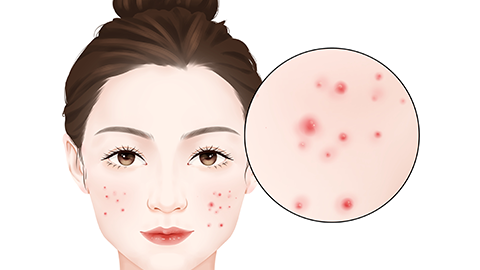How to treat seborrheic acne?
Seborrheic acne may be caused by genetic predisposition, hormonal fluctuations during puberty, improper skincare, stress and emotional factors, and Propionibacterium acnes infection. Improvement can be made according to different situations. It is recommended to seek timely medical consultation and receive treatment under a doctor's guidance.

1. Genetic predisposition: Individuals with a family history of seborrheic acne have a higher risk of developing this condition. Pay attention to daily skincare and adjustments in lifestyle habits, control inflammation, and reduce sebum secretion.
2. Hormonal fluctuations during puberty: During puberty, increased levels of androgens in the body stimulate the sebaceous glands to secrete excessive oil, leading to clogged pores and the development of seborrheic acne. Maintain healthy lifestyle habits, regular sleep patterns, balanced diet, and reduce the intake of high-sugar and high-fat foods.
3. Improper skincare: Improper skincare practices or inappropriate selection of cosmetics, especially those containing large amounts of oily ingredients, can block pores, hinder the normal discharge of sebum, form closed comedones, provide a breeding environment for bacteria, and subsequently trigger acne. Choose mild, oil-free, non-comedogenic skincare products and cosmetics suitable for your skin type, and perform deep cleansing regularly.
4. Stress and emotional factors: Long-term exposure to high-pressure conditions or significant emotional fluctuations can affect sebaceous gland function through neuroendocrine pathways, triggering or worsening seborrheic acne. Employ effective methods to manage stress, such as exercise, meditation, and psychological counseling, to alleviate mental burdens.
5. Propionibacterium acnes infection: Propionibacterium acnes multiplies extensively within hair follicles, breaking down sebum to produce free fatty acids, which irritate the follicle walls and trigger inflammation, causing and exacerbating seborrheic acne, often accompanied by redness, pain, and pus formation. Patients can use medications such as tretinoin cream, benzoyl peroxide gel, and fusidic acid ointment as directed by a physician to improve their condition.
During the treatment process, it is important to maintain healthy lifestyle habits and dietary patterns, avoiding adverse influences such as excessive fatigue and mental stress.







